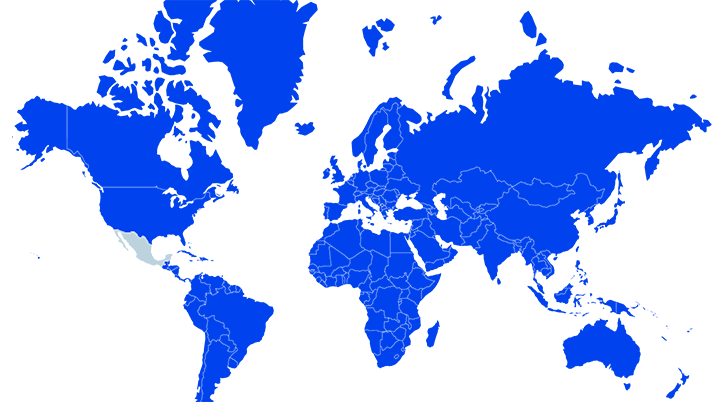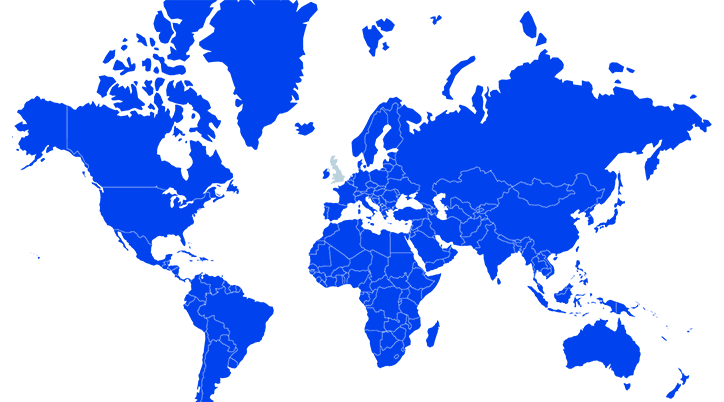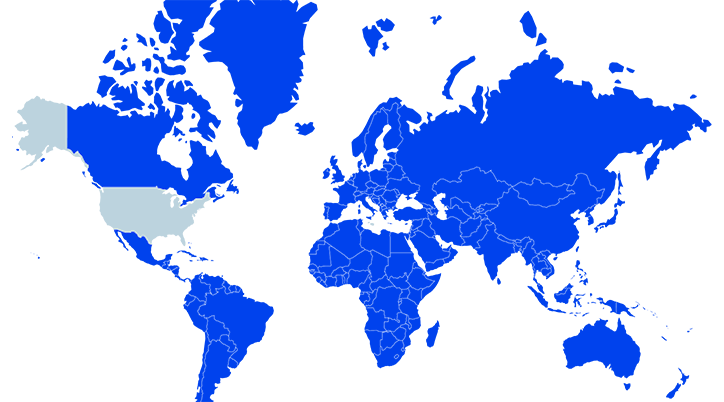R&D.
Projects for a more sustainable future
Institutional programmes that promote public-private collaboration are of vital importance to develop the strategic initiatives needed to face aeronautical industry challenges
Clean Aviation
Clean Aviation is the European Union’s primary research and innovation programme for a more sustainable aviation sector.

The HEAVEN (Hydrogen Engine Architecture Virtually Engineered Novelly) project aims to develop new ultra-efficient turbine engine architectures for aeronautical applications. The programme will develop and scale the architecture of the UltraFan™ engine by Rolls-Royce, while developing the technologies needed for future aviation platforms incorporating hydrogen and hybrid-electric technology.
HEAVEN is financed via Next Generation EU funding.
TheMa4ERA (Thermal management for the Hybrid Electric Regional Aircraft) pursues the research and development of thermal management solutions for hybrid-electric regional aircraft applications.
The project is financed via Next Generation EU funding.
The CAVENDISH (Consortium for the AdVent of aero-Engine Demonstration and aircraft Integration Strategy with Hydrogen) project aims to investigate hydrogen combustion technologies in aircraft engines.
CAVENDISH is financed through Next Generation EU funding.
EDFs (European Defence Funds)
The European Commission’s instrument to support competitive co-operation projects and R&D for European defence.


The ENGRT (EU Next Generation Rotorcraft Technologies) project aims to develop the next generation of EU military helicopters. The project will analyse future needs, key characteristics and capabilities of future helicopters, alternative helicopter platforms, flight demonstrators and simulators. The project will also develop a technological roadmap for military helicopters, modularity and manufacturing strategies, life cycle analysis and maintenance concepts.
The FASETT (Future Air System for European Tactical Transportation) project aims to study the technical and market possibilities for the potential development of a new robust and cost-competitive tactical transport aircraft platform in the time horizon 2030 – 2040. ITP Aero takes part in the activities of the Propulsion package and also serves as the propulsion representative in the ‘Future Support System’ work package of the platform.
Aeronautical Technology Programme
Funding programme for strategic R&D initiatives aimed at developing relevant technologies applicable in the aeronautical field.


The CRIPICOM (Criogeny, Fuel Cells and Combustion of Hydrogen) project aims to develop the technologies to employ hydrogen as a source of energy, fundamental for the aircraft’s propulsion and auxiliary systems.
The project is subsidised by the Centre for Technological Development and Innovation (CDTI), supported by the Spanish Ministry of Science and Innovation in the framework of the Recovery, Transformation and Resilience Plan.
APERTURAS (Advances in Electric Propulsion with Turbomachines) is a project that seeks to develop propulsion based on electrically driven turbomachines for aeronautical applications.
The project is subsidised by the Centre for Technological Development and Innovation (CDTI), supported by the Spanish Ministry of Science and Innovation in the framework of the Recovery, Transformation and Resilience Plan.
The aim of the CHALUPA (use of liquid hydrogen in Auxiliary Power Units) project, is to find a way to integrate liquid hydrogen-fuelled Auxiliary Power Unit architectures into an aircraft.
The project is subsidised by the Centre for Technological Development and Innovation (CDTI), supported by the Spanish Ministry of Science and Innovation in the framework of the Recovery, Transformation and Resilience Plan.
Co-funded collaborative
projects
Collaborative projects co-funded by the Centre for the Development of Industrial Technology.


Initiative for the development of materials and advanced manufacturing technologies for high-speed turbines, led by ITP Aero.
Project with the aim of developing repair techniques, using cold spray technology for nickel-based materials.
Programme designed to develop an Engine Health Monitoring (EHM) tool that can perform diagnostics and predictions autonomously.
Programme for the acquisition of technologies for low-pressure compressors.
Project for the development of key technologies associated with the digital transformation: smart manufacturing, connected products and digital business.
Collaborative Projects financed by the Basque Government
Collaborative Projects by the Business Development Agency of the Basque Government.


Research project into new technology and production processes of the Basque aeronautical manufacturing network for future high-speed turbines.
The project is funded by the Department of Economic Development, Sustainability and Environment of the Basque Government and also receives funding from the European Regional Development Fund (ERDF).
Digital quality control platform for zero-defect manufacturing using artificial intelligence.
The project is funded by the Department of Economic Development, Sustainability and Environment of the Basque Government and also receives funding from the European Regional Development Fund (ERDF).
A project that aims to analyse in-depth, state-of-the-art of electric propulsion applied to air transport.
The project is funded by the Department of Economic Development, Sustainability and Environment and also receives funding from the European Regional Development Fund (ERDF).
Project that pursues innovation in key digital and Artificial Intelligence technologies in aeronautical manufacturing processes.
The project is funded by the Department of Economic Development, Sustainability and Environment and also receives funding from the European Regional Development Fund (ERDF).
PRESCOR (Propulsion based on superconductors) is the study on the cooling of electric engines using cryogenic hydrogen, giving the basis for the installation of this system on an aircraft.
The project is funded by the Department of Economic Development, Sustainability and Environment, and also receives funding from the European Regional Development Fund (ERDF).
The HYPERSCALE (Hyperscale Edge Computing Open Platform for Industrial DataSpaces) project aims to ‘hyperscale’ Edge and Fog computing architectures to drive data management, people decision-making applications and AI models in advanced manufacturing.
The project is funded by the Department of Economic Development, Sustainability and Environment, and also receives funding from the European Regional Development Fund (ERDF).
Horizon 2020
Horizon 2020 is the European Union’s largest Framework Programme for research and innovation which includes different initiatives involving ITP Aero as a fundamental player.


European Research Programme for the development of cutting-edge technology to reduce CO2, gas emissions and noise levels produced by aircraft.
For this programme, ITP Aero is the main partner behind the development and manufacturing of the intermediate pressure turbine and the rear structure of the UltraFan® engine by Rolls-Royce.
This project is funded through the European Commission’s Horizon 2020 programme.
EU-China collaboration project for the development of more efficient manufacturing processes for aeronautical components using additive technology, hot isostatic pressing and die casting of titanium alloys.
This project is funded through the European Commission’s Horizon 2020 programme
A programme aimed at developing predictive methodologies and noise reduction technologies to enable the European aerospace industry to develop more environmentally friendly aircraft.
This project is funded through the European Commission’s Horizon 2020 programme
Initiative for the creation of a digital integrated design decision support system for the improvement of the overall productivity of the manufacturing chain with Powder Bed Fusion PBF (PBF).
This project is funded through the European Commission’s Horizon 2020 programme
Project focused on research into advanced aeromechanical solutions in three aircraft engine subsystems: the low-pressure turbine, compressor and seals.
This project is funded through the European Commission’s Horizon 2020 programme
Research and development of the technologies needed for hybrid-electric propulsion.
This project is funded through the European Commission’s Horizon 2020 programme
Collaborative projects funded by the Spanish Ministry of Science and Innovation
Collaborative Projects funded by the Spanish Ministry of Science, Innovation and Universities.


Project for the improvement of the simulation capabilities to be applied in the intermediate pressure turbine of the UltraFan™ engine by Rolls-Royce.
Project co-funded by the European Union – European Regional Development Fund (ERDF).
Objective of the Operational Programme: Promoting technological development, innovation and quality research.
Project for the development of key early dynamic technologies for the UltraFan™ engine by Rolls-Royce.
Project co-funded by the European Union – European Regional Development Fund (ERDF).
ATI (Aeroespace Technology Institute)
The Aerospace Technology Institute designs the technology strategy and develops a portfolio of R&D activity for the UK aerospace sector.


ITP Aero leads project LADDER (Laser Automation and Design Development for future Engine Requirements) with the aim to develop and implement an innovative laser beam welding solution, as a robust joining technology for complex sheet-metal aeroengine fabrications.
The project is funded by the Innovate UK, part of UK Research and Innovation through ATI (Aerospace Technology Institute).
RACHEL (Robustly Achievable Combustion of Hydrogen Engine Layout) will design and manufacture key components and assemblies required to run a Hydrogen powered engine and demonstrate effective heat management.
The project is funded by the Innovate UK, part of UK Research and Innovation through ATI (Aerospace Technology Institute).






